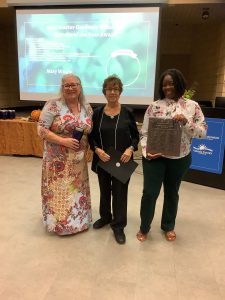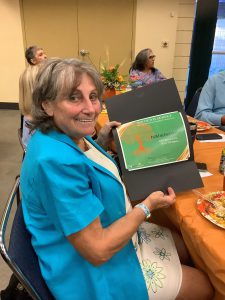When selecting volunteers to carry out your program’s mission, we often spend ample time on parts of the marketing and training sector. Over time, the program begins to operate in a robotic manner as we continue with the annual components of marketing, training, and recognition. The question is what is so important about volunteer recognition or retention and is it truly beneficial to the success of volunteer programs?
Volunteer retention is linked to the purpose and goals of your program. Think about the following:
- Where do your volunteers fit?
- Were they paired with opportunities that showcase their strengths and weaknesses?
- Were they paired with like-minded individuals with whom they can glean and share information?
- Are there ample resources to support and stimulate the interest of your volunteers?
These are foundational questions that outline the quality of the volunteer program you wish to develop. These questions also determine how you can retain your volunteers.
Two Journal of Extension articles indicate volunteers remain with programs based on the educational value obtained, contributions to community development, recognition, and the standards of excellence set by the overall program’s objectives. Extension volunteer programs are set to train volunteers on specific program areas to assist the extension agent with disseminating information and programs needed by the citizens of their assigned localities. These volunteers play an integral role in the success of extension programs as they often recruit other community members to join and give back.
So, how is volunteer retention the root of the program? When your program has committed volunteers that continue to remain active 5 years or longer, community members take notice. Majority of extension-based volunteers volunteer with other agencies and may even hold leadership positions within other organizations. They have additional opportunities to share the knowledge of the volunteer programs they engage in but often will speak on the ones they are most fond of that meet their needs as a volunteer. A strong group of dedicated volunteers will allow your program to grow because time is being spent on building upon the skills obtained from trainings, rather than time spent solely on annual trainings to get people through a program.


Quality Volunteer Retention Tips:
Volunteer retention is a mental formula comprised of methods of improvement, understanding volunteer burnout, and learning your volunteer group.
Areas of Improvement for Retention:
- Recognition opportunities
- Educational opportunities
- Service opportunities that speak to the volunteer’s skill set
Red Flags of Volunteer Loss:
- Burnout
- Unpleasant experience or lack of appreciation
- Navigating life
Making the Change:
- Take time to learn your volunteers. Observe and identify their strengths and weaknesses to be able to share opportunities for trainings.
- Offer quality programs. Do NOT operate in a “check the box” manner. Volunteers will notice this and will become disengaged with the program.
- Capitalize on your volunteers’ skillsets. If someone is creative, encourage them to assist with the hospitality committee for events. If someone has a strong financial background, encourage them to chair the budget committee. Perhaps you have a former educator on your team, ask them to assist with developing training materials for advance trainings.
- Your volunteers are investing in the program, generate surveys to see what their needs are and develop a plan of action to meet them. This shows your volunteers you care about their voice.
- Say Thank You. Yes, they signed up to be apart of your program however, showing gratitude goes a long way especially with retaining volunteers.
Volunteer retention is the foundation of a successful program, without truly understanding how to retain your volunteers the program you are building will not be stable. For more information on retaining volunteers, check out these resources:
Ascher, P., Meyer, M., Schrock, D., Snyder, M. (2000, February) Benefits &Values of the Master Gardener Program. https://archives.joe.org/joe/2000february/rb2.php
Rohs, F., Stribling, J., Westerfield, R., (2002, August) What Personally Attracts Volunteers to the Master Gardener Program? https://archives.joe.org/joe/2002august/rb5.php
Brudney, J., Hager, M. (2004, June) Volunteer Management Practices and Retention of Volunteers. https://www.urban.org/sites/default/files/publication/58001/411005-Volunteer-Management-Practices-and-Retention-of-Volunteers.PDF
 2
2
